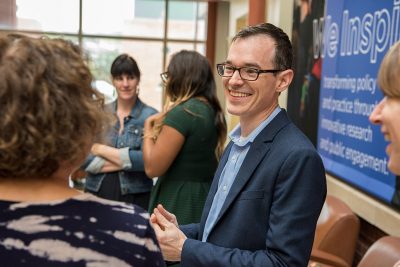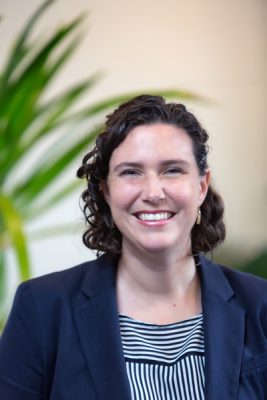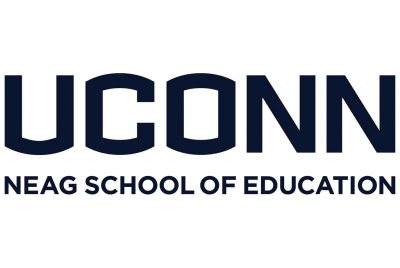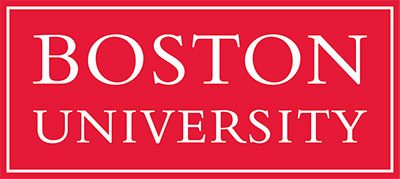
The U.S. Department of Education has awarded $2.5 million in funding through its Office of Special Education Programs (OSEP) to special education faculty at Boston University (BU)’s Wheelock College of Education & Human Development and UConn’s Neag School of Education for a project that will fully fund five doctoral students at each institution over the next five years.
Titled Project LINC: Preparing Scholar Leaders to Study Interventions and Complex Systems, the partnership will utilize resources and expertise from both institutions to prepare doctoral scholars in three key areas:
- To understand interventions in literacy, social and behavioral skills, and transition,
- To understand the complex educational systems that support students with disabilities, and
- To conduct rigorous research related to these foci.
LINC Scholars, who will be recruited into the program for a fall 2020 start, will receive full tuition support from their institution, along with stipend, insurance, and financial resources for travel and other expenses related to the LINC project.
“We look forward to partnering with BU’s Wheelock College on these efforts and, ultimately, to seeing 10 stellar doctoral students advance from our institutions to serve as leading scholars in this critical shortage area.”
— Dean Gladis Kersaint
The project places intentional emphasis on scholarship and activity, which supports cross-site collaboration within the cohort. Scholars will engage in seminars, online learning, and professional conferences that support their success within the program, while completing course- and fieldwork that prepares them to conduct rigorous research.

“This is such a great opportunity for BU and UConn to be training the next generation of scholars,” says Elizabeth Bettini, assistant professor at BU Wheelock and one of the project’s organizers. “It is a pretty incredibly opportunity for doctoral students to be mentored by faculty with a wide range of expertise and skill.”
Project organizer Devin Kearns, associate professor at UConn’s Neag School, concurs: “My colleagues and I at UConn are excited to welcome scholars who want to do work in literacy, positive behavior intervention and supports, or postsecondary transition with leading researchers in the field, scholars who also want to learn from the exceptional BU faculty about other systems that help students with disabilities succeed.”
“The Neag School is motivated and excited by this new federally funded leadership grant focused on growing the number of experts in the special education field,” says Neag School Dean Gladis Kersaint. “We look forward to partnering with BU’s Wheelock College on these efforts and, ultimately, to seeing 10 stellar doctoral students advance from our institutions to serve as leading scholars in this critical shortage area.”
Unique faculty expertise will inform the experience of scholars at each institution. BU faculty, who hold expertise in educational, policy, mental health and family systems serving students with disabilities, will guide scholars in developing expertise in those systems and in the systemic factors shaping the experiences and outcomes of students with disabilities and their families. Those faculty include:
- Elizabeth Bettini, who researches factors that contribute to inequities in students’ access to skilled special educators. She has expertise in special educators’ working conditions and attrition, particularly among beginning teachers and those serving students with emotional/behavioral disorders.
- Jennifer Grief Green, who researches school-based mental health service provision, especially for students with emotional/behavioral disorders, racial/ethnic disparities in mental health service access, and bullying prevention.
- Nathan D. Jones, who researches educator development systems, including teacher quality and teacher development, with a focus on the use of measures of teacher effectiveness in evaluation systems.
- Zachary Rossetti, who studies experiences of families with children with and without intellectual disabilities and autism spectrum disorders, focusing on family engagement in education, home-school collaboration, community participation, and sibling roles and relationships.
UConn Neag School faculty, who hold expertise in implementation of literacy, socio-behavioral, and transition interventions and intervention systems for students with disabilities and their families, will support LINC scholars in developing expertise in those interventions and in studying interventions that improve the experiences and outcomes of students with disabilities. They include:
- Devin Kearns, who researches reading disability — including dyslexia — and reading interventions for elementary- and middle school-age children.
- Michael Coyne, who has expertise in beginning reading and early vocabulary intervention, school-based experimental research, multi-tiered systems of support, and effective practices for students with learning disabilities.
- Allison Lombardi, who studies transition from adolescence to adulthood, with a particular focus on college and career readiness and higher education experiences of underrepresented groups, including students with disabilities.
- Jennifer Freeman, who studies the effects of multi-tiered systems of support, such as PBIS, on outcomes for high-risk student groups, including students with disabilities. She also studies professional development methods for improving teacher’s use of evidence-based classroom management strategies.

 Potential applicants to the program are encouraged to seek further information about Project LINC by reaching out to the project’s faculty leaders, Bettini and Kearns. Each institution will host applicants for a recruitment weekend this spring. The project team welcome applications from professionals in education and related fields (e.g., social work, counseling, mental health) who have worked with students with disabilities in applied settings, such as schools, for at least three years. Applicants must hold a masters degree, preferably in a related field (e.g., education, special education, social work, school counseling, cognitive science). Learn more.
Potential applicants to the program are encouraged to seek further information about Project LINC by reaching out to the project’s faculty leaders, Bettini and Kearns. Each institution will host applicants for a recruitment weekend this spring. The project team welcome applications from professionals in education and related fields (e.g., social work, counseling, mental health) who have worked with students with disabilities in applied settings, such as schools, for at least three years. Applicants must hold a masters degree, preferably in a related field (e.g., education, special education, social work, school counseling, cognitive science). Learn more.
 Facebook
Facebook
 Twitter
Twitter
 LinkedIn
LinkedIn
